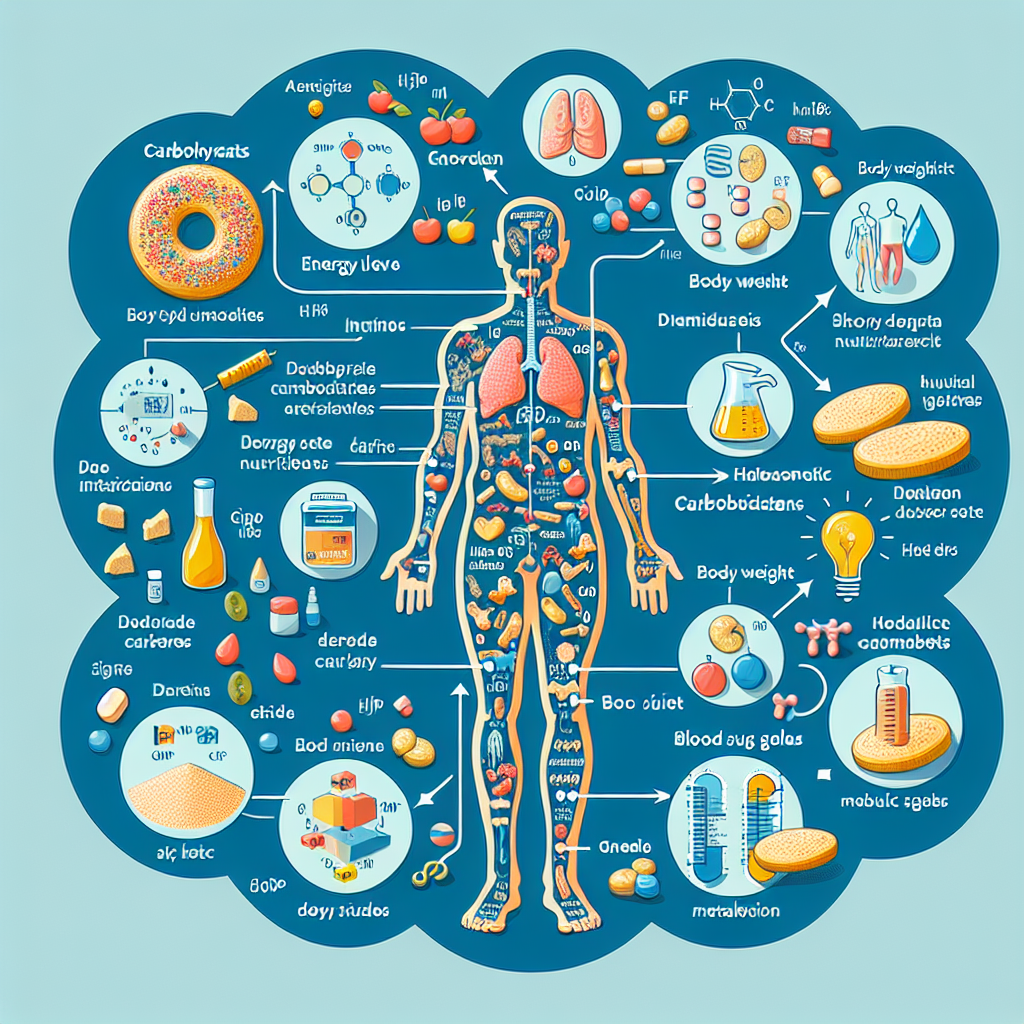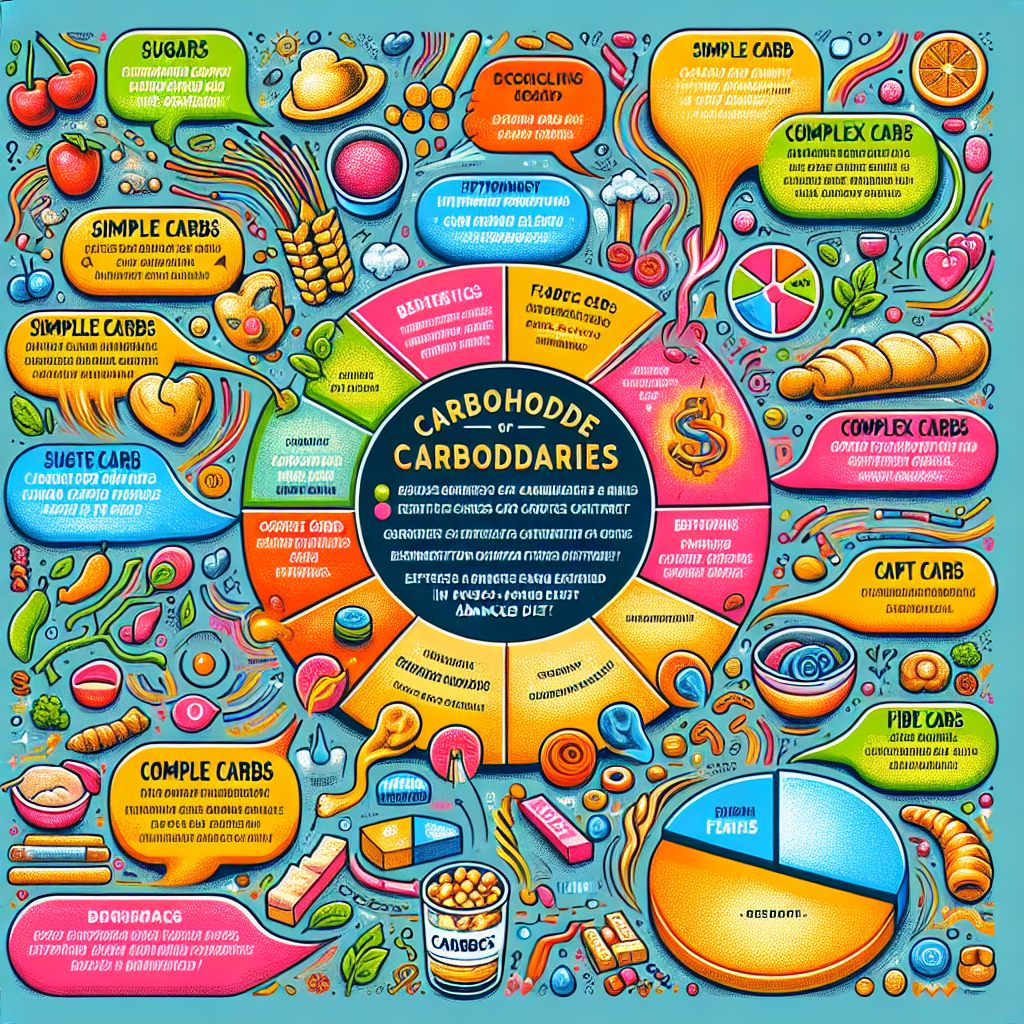How Carb Intake Impacts Nutrition

Discover how your carb intake impacts your overall nutrition. Learn more about the role of carbohydrates in your diet and how to balance them for optimal health. Visit My Vibrant Vitality today.
Understanding the Role of Carbohydrates in Your Nutritional Health
Carbohydrates, often referred to as carbs, play a pivotal role in our nutritional health. They are one of the three macronutrients, alongside proteins and fats, that our bodies need in large amounts to function optimally. However, the impact of carb intake on our health is a topic that has been subject to much debate and confusion.
Carbohydrates are the body’s primary source of energy. They are broken down into glucose, which is used by our cells, tissues, and organs for energy. When we consume carbs, our body converts them into glucose, which is then used immediately for energy or stored in our liver and muscles for later use. This is why athletes often load up on carbs before a big event; they are essentially stocking up on energy reserves.
However, not all carbohydrates are created equal. They are generally categorized into two types: simple and complex. Simple carbs, found in foods like white bread, pastries, and sugary drinks, are quickly absorbed by the body, leading to a rapid spike in blood sugar levels. This can result in a burst of energy followed by a crash, leaving you feeling tired and hungry again. On the other hand, complex carbs, found in foods like whole grains, fruits, and vegetables, are digested more slowly, providing a steady release of energy and keeping you feeling full for longer.
The type of carbs you consume can significantly impact your nutritional health. A diet high in simple carbs can lead to weight gain and increase your risk of developing health conditions like diabetes and heart disease. This is because these foods are often high in calories but low in nutrients. Conversely, a diet rich in complex carbs can help maintain a healthy weight, regulate blood sugar levels, and reduce the risk of chronic diseases. These foods are typically high in fiber, which aids digestion and can help lower cholesterol levels.
The quantity of carbs you consume also matters. The Dietary Guidelines for Americans recommends that carbohydrates make up 45 to 65 percent of your total daily calories. However, this should be tailored to your individual needs and lifestyle. For instance, if you lead an active lifestyle, you may need more carbs to fuel your workouts. Conversely, if you are sedentary, you may need fewer carbs.
It’s also worth noting that cutting carbs drastically or following low-carb diets like the ketogenic diet can lead to nutritional deficiencies. While these diets can aid in weight loss, they often restrict the intake of nutrient-rich foods like fruits and vegetables. This can lead to deficiencies in essential vitamins and minerals, negatively impacting your health in the long run.
In conclusion, carbohydrates play a crucial role in our nutritional health. They provide us with the energy we need to function and are essential for various bodily processes. However, the type and quantity of carbs we consume can significantly impact our health. A balanced diet rich in complex carbs, coupled with regular physical activity, can help maintain a healthy weight and reduce the risk of chronic diseases. As with all aspects of nutrition, moderation and balance are key. It’s not about eliminating carbs but about choosing the right ones and consuming them in the right amounts.
The Impact of Carb Intake on Weight Management and Nutrition

Carbohydrates, commonly referred to as carbs, are a primary source of energy for the body. They are one of the three macronutrients, alongside proteins and fats, that the body needs in large amounts to function optimally. However, the intake of carbs has been a topic of heated debate in the realm of nutrition and weight management. Some argue that a low-carb diet is the key to weight loss, while others contend that carbs are essential for overall health and should not be drastically reduced.
Carbs are found in a wide variety of foods, including fruits, vegetables, grains, and dairy products. They are broken down into glucose, which is used by the body for energy. The body’s ability to efficiently use this energy is a critical factor in weight management. When the body has an excess of glucose, it stores it as fat for later use. Therefore, consuming large amounts of carbs can lead to weight gain if the body is unable to use all the energy provided.
However, not all carbs are created equal. They are generally categorized into two types: simple and complex. Simple carbs, found in foods like sugar, honey, and white bread, are quickly absorbed by the body, leading to a rapid spike in blood sugar levels. This can result in a burst of energy followed by a crash, leaving you feeling tired and hungry. On the other hand, complex carbs, found in foods like whole grains, legumes, and vegetables, are digested more slowly, providing a steady release of energy and keeping you feeling full for longer.
The type of carbs you consume can significantly impact your weight management and overall nutrition. A diet high in simple carbs can lead to weight gain and other health issues like diabetes and heart disease. This is because these foods are often low in fiber and other essential nutrients, leading to overeating and nutrient deficiencies. Conversely, a diet rich in complex carbs can support weight loss and provide a wealth of nutritional benefits. These foods are typically high in fiber, which aids in digestion and helps control appetite, and are packed with vitamins and minerals necessary for good health.
While it’s clear that the type of carbs consumed plays a crucial role in weight management and nutrition, the amount of carbs consumed is also important. The Dietary Guidelines for Americans recommends that carbs make up 45 to 65 percent of your total daily calories. However, this can vary depending on individual needs and goals. For instance, someone looking to lose weight might benefit from a lower carb intake, while an athlete might need a higher carb intake to support their energy needs.
In conclusion, carb intake has a significant impact on weight management and nutrition. Consuming the right type and amount of carbs can support weight loss, provide essential nutrients, and promote overall health. However, it’s important to remember that everyone’s nutritional needs are different, and what works for one person may not work for another. Therefore, it’s always best to consult with a healthcare professional or a registered dietitian before making any major changes to your diet. They can provide personalized advice based on your individual needs and goals, helping you make informed decisions about your carb intake.
Balancing Carb Intake: The Key to Optimal Nutrition
Carbohydrates, often referred to as carbs, play a pivotal role in our daily nutrition. They are the primary source of energy for our bodies, fueling everything from our brain function to our physical activities. However, not all carbs are created equal, and the type and amount of carbs we consume can significantly impact our overall nutrition and health. Balancing carb intake is, therefore, a key aspect of optimal nutrition.
Carbohydrates can be broadly classified into two categories: simple and complex. Simple carbs, found in foods like sugar, honey, and white bread, are quickly absorbed by the body, providing an immediate energy boost. However, this rapid absorption can lead to spikes in blood sugar levels, followed by a sudden drop, which can leave you feeling tired and hungry. On the other hand, complex carbs, found in foods like whole grains, legumes, and vegetables, are digested more slowly, providing a steady supply of energy and keeping you feeling full for longer.
The type of carbs you consume can significantly impact your nutrition. A diet high in simple carbs can lead to weight gain and increase the risk of diseases like diabetes and heart disease. This is because simple carbs are often low in fiber and other essential nutrients, leading to overeating and poor nutrition. Conversely, a diet rich in complex carbs can promote weight loss and improve health. Complex carbs are high in fiber, which aids digestion and helps control appetite. They also contain essential vitamins and minerals, contributing to a well-rounded diet.
However, it’s not just about the type of carbs; the amount also matters. The Dietary Guidelines for Americans recommend that carbs make up 45 to 65 percent of your total daily calories. However, this doesn’t mean you should fill up on bread and pasta. Instead, aim to get most of your carbs from nutrient-dense sources like fruits, vegetables, and whole grains. These foods not only provide carbs but also a wealth of other nutrients, making them a valuable part of a balanced diet.
Balancing carb intake is a delicate act. Too few carbs can leave you feeling tired and sluggish, as your body doesn’t have enough fuel to function properly. On the other hand, too many carbs, especially from unhealthy sources, can lead to weight gain and health problems. The key is to find a balance that works for your body and lifestyle.
One way to balance carb intake is through portion control. Instead of eliminating carbs entirely, try reducing the portion size of carb-rich foods and filling up on lean proteins and vegetables. This can help you get the energy you need without overloading on calories.
Another strategy is to choose your carbs wisely. Opt for whole grains over refined grains, and choose fruits and vegetables over sugary snacks. These choices can help you get the most nutritional bang for your buck, providing essential nutrients along with the carbs your body needs.
In conclusion, carbs are a crucial part of our diet, providing the energy our bodies need to function. However, the type and amount of carbs we consume can significantly impact our nutrition and health. By choosing nutrient-dense carbs and balancing our intake, we can ensure we’re getting the energy we need while also supporting our overall health.